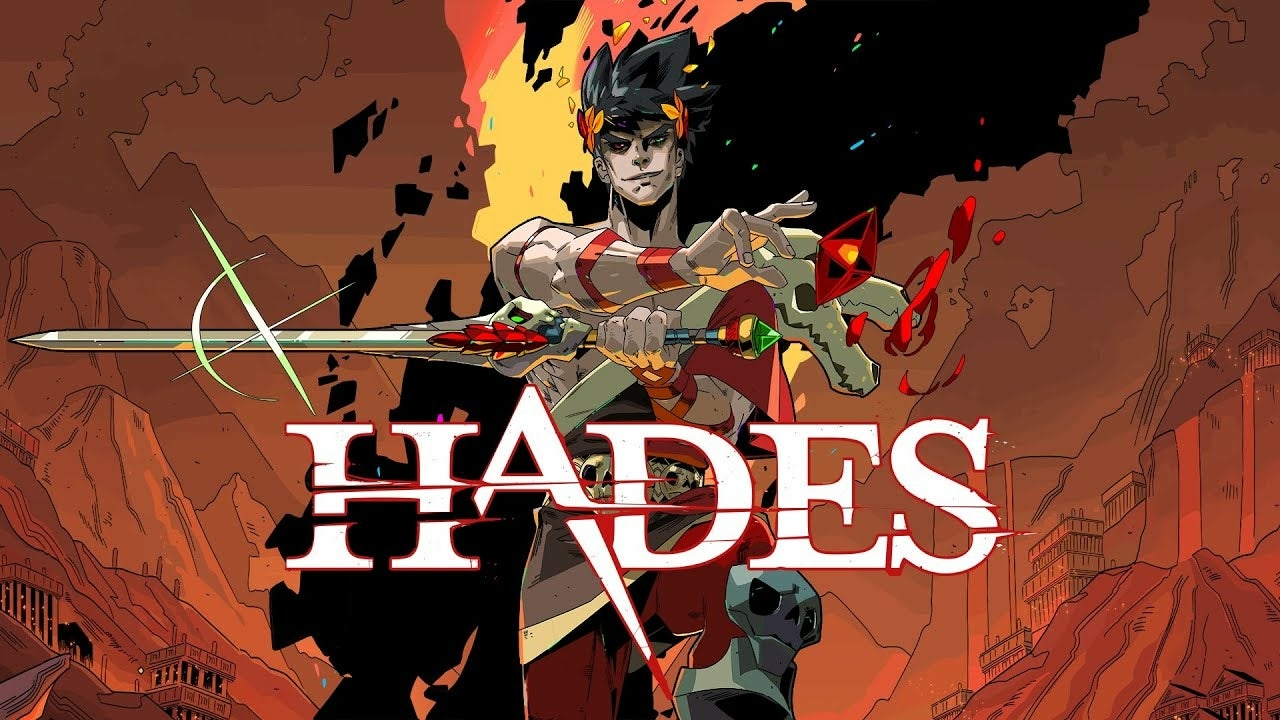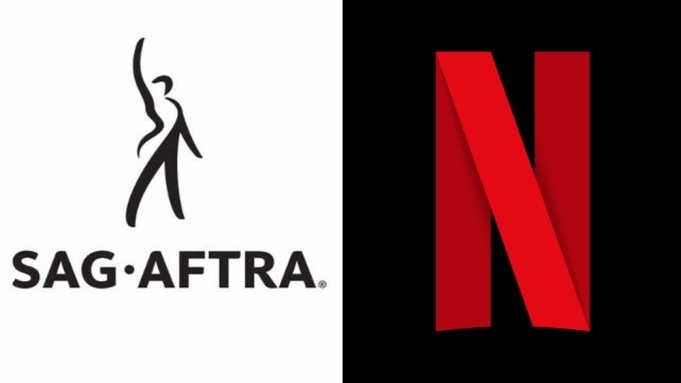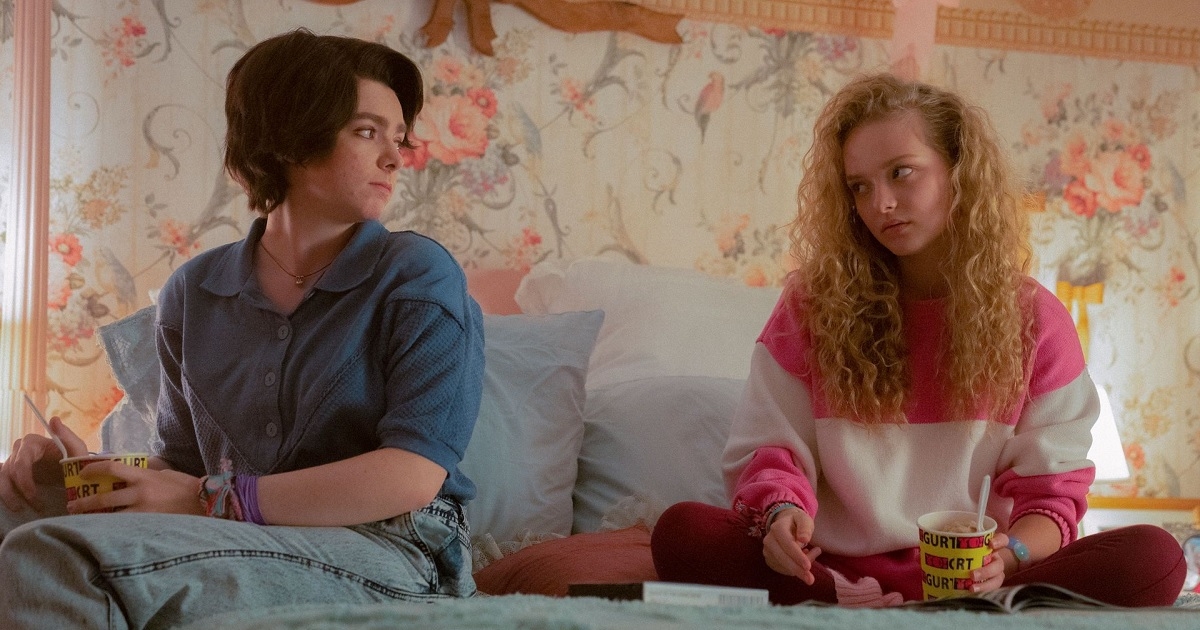The Sandman, Neil Gaiman’s iconic and groundbreaking exploration of dreams, fantasy and the occult, is getting a lush adaptation on Netflix. Known by Norman Mailer as “a cartoon for intellectuals,” The Sandman is among the finest pieces of storytelling and artistry we’ve seen in the comics genre. It is famously challenging, thought-provoking, philosophical and unwilling – or perhaps unable – to confine itself to a given category. Like its famously elusive protagonist, The Sandman flows, twists and turns through a story that remains engaging, even if it’s not always accessible.
Reviews for the show have been strong out of the gate; it currently sits at an impressive 86% on Rotten Tomatoes. Critics call it loyal to a fault to the source material, and praise the production values, ambition and determination to bring Gaiman’s vision to life. The Sandman’s positive reception is a victory in itself; like Alan Moore’s Watchmen, Gaiman’s graphic novel was often considered too unflinching for a traditional adaptation. The word “unfilmable” often accompanied the title, despite several attempts to bring it to live action.
So why now? Why is this the right time to adapt The Sandman? If anything, now is the worst possible time to do it. We live in the “age of content”, when entire films can be scrapped to maximize profits and investment. Artistic integrity takes a nosedive when CEOs and studio heads have to answer to Wall Street. Is it wise to release a notoriously inaccessible project in such a climate? And is Netflix, the king of impatience, the right home for a story that stands out for its slow-burn approach?
The problem with Netflix
Netflix started the streaming boom we currently live in, building its empire through acquired and ultimately original content. Known as the land of “yes,” the streamer threw large amounts of money at top talent in an effort to position itself as a legitimate film and television studio. Read also : WGA wins $42 million in ‘self-settled’ arbitration against Netflix. And it worked… well, sort of, anyway.
While not without its faults, Netflix has an impressive collection of original movies, many of which have become big players this awards season. The streamer also has a number of certified hits, with projects like the above-average Extraction and the truly pitiful Red Notice ranking among the most streamed movies ever. However, this winning formula is already showing obvious cracks, leading many to believe that the impressive empire will crumble sooner than expected.
First, Netflix is impatient. If something isn’t a hit right off the bat, the streamer pulls the plug without a second thought. Promising shows that could have found an audience over time, such as I Am Not Okay with This, Raising Dion and The Society, are dismissed with little or no explanation. Deadline reported that the recently canceled First Kill failed to meet Netflix’s threshold for completing episodes, providing further insight into how the streamer treats its properties. With Netflix, it’s all about calculations. Nobody knows anything but the algorithm.
Will the calculations be on the Sandman’s side? Gaiman’s comic is a slow burn if there ever was one, with weighty and sometimes demanding themes mixed into a story that tries and barely succeeds at acting more traditionally. The Sandman deftly juggles metaphysical concepts and ideas, personifying them with compelling characters that make the journey more engaging, if not necessarily more digestible. On paper, it works because of Gaiman’s sharp and insightful words, which, accompanied by the richly unique art of a host of artists, including Sam Keith and Bryan Talbot, construct a world of fantasy and awe that beautifully and accurately conveys its ambitions.
Netflix’s The Sandman pulls off the impressive feat of recreating its source material’s striking visuals in service of its abstract story. But keeping the story’s flow and themes nearly intact can be shooting itself in the foot, especially when the place it calls home is notorious for being in a perpetual rush. Viewers will find The Sandman challenging, as they should. It’s a work of art that rewards patience and dedication, two things that Netflix doesn’t usually understand.
How can the streamer expect this bold project to resonate with the very audience it trained to disengage with slow-burn storytelling? Is Netflix willing to take the time to develop The Sandman, or does it expect to triumph on name recognition alone? Does The Sandman even have such a pull with modern audiences? It’s not your average DC property; The Sandman cares more about the play that takes place within. It’s not The Witcher, and it’s certainly not Game of Thrones. The Sandman is its own thing, a corner of imagination that lives in a place where the genuine awe comes from ideas rather than execution. Does Netflix understand this? Will it even?
Who is talking about this?
Rounding back to First Kill, the showrunner, Felicia D. Henderson, also blamed Netflix’s lack of marketing for the show’s abrupt cancellation. In fact, the streamer is notorious for never putting any marketing effort whatsoever into any of its first-year shows, and for years it didn’t need to. Read also : Top Netflix Movies and Shows: What Goes On June 20, 2022. People ended up watching anything on Netflix out of boredom or genuine engagement with the platform’s catalog. Shows like Virgin River are huge hits on the streamer, but no one ever talks about them, to the point where many people may not even be aware of them.
Recent developments have shown that Netflix’s formula is unsustainable. Word of mouth can do wonders for a project — it propelled the superior Top Gun: Maverick to a whopping $1.3 billion at the box office. But word of mouth can only do so much, especially for original projects without a built-in fan base. Most of Netflix’s cancellations come from audiences not being aware of the show in the first place; how can they see something they don’t even know exists?
To be fair, Netflix did mount a significant marketing effort to support The Sandman. Their campaign relied heavily on Gaiman, recognizing him as the property’s true star. In a bizarre, if admirable choice, the show chose not to cast any real stars. Sure, it has Gwendoline Christie – a truly inspired choice to play Lucifer Morningstar – plus Stephen Fry and even Patton Oswalt. However, it lacks a major Hollywood star, the kind of actor that would make sense in a major IP like this; there’s no Henry Cavill here, no Winona Ryder or Jason Bateman. Netflix pulled off this trick before with great success, casting mostly unknown actors in some of its biggest hits—Bridgerton, Never Have I Ever, and the Haunting shows come to mind. But does the audience expect something more from the cartoon content? The Sandman may have benefited more from having a “leading man” in the title role.
Aware that Gaiman alone wouldn’t sell the show, The Sandman lived up to his geek credentials by having a significant presence at this year’s Comic-Con. The show had a panel with most of the major players, and debuted a trailer that looked promising and gave fans hope for a show that didn’t bastardize the source material like many other Netflix adaptations do — I’m looking at you, Persuasion. But was it enough? No, it wasn’t. Any noise The Sandman might have made was all but drowned out by the roar that came courtesy of HBO’s House of the Dragon and the MCU’s avalanche of Phase 5 and 6 news. Even DC’s paltry panel was more impactful than The Sandman’s, largely due to a lightning-quick Dwayne Johnson.
Netflix tried to generate buzz for The Sandman, but did it try hard enough? Any effort seems significant when everything that came before is basically non-existent. However, the streamer doesn’t seem to understand that a good marketing campaign can make the difference between a hit and a flop. Netflix can no longer survive on reputation alone, mainly because its reputation is in the gutter. And while most of the industry is currently too focused on hating Warner Bros. Discovery for the treatment of HBO Max, Netflix doesn’t have enough goodwill to launch a major IP in the void and hope it works on name recognition and loyalty alone.
A match made in hell
So what is the future of The Sandman on Netflix? In the best-case scenario that it performs according to Netflix’s desired metrics, the show will last three seasons before coming to a quiet and unceremonious end. Fantasy shows seem to be hit-or-miss on Netflix. This may interest you : Mean Girls is back on Netflix, and the internet has thoughts. The Witcher was very strong out of the gate, but season 2 saw a significant drop in audience interest. Similarly, projects such as Locke & Key and even Shadow and Bone are far from the streamer’s most impactful entries, though they perform well enough to warrant a longer stay in the catalog.
On the other hand, the worst-case scenario is that The Sandman crashes and burns, causing Netflix to pull the plug sooner than expected. However, I don’t see that happening; Netflix will save face and give the show another outing before deciding its fate, especially considering Neil Gaiman’s prominent involvement.
Like every other streamer and network, Netflix is looking for its next big franchise – the next Game of Thrones. Unfortunately, The Sandman is not. Rich in ideas rather than world-building, Gaiman’s work is meant to be enjoyed, analyzed, dissected and appreciated. However, it is somewhat limited in scope; The Sandman is not the kind of property that can produce endless spinoffs focusing on the past and future of its setting. What spinoff potential it has has either already been done (Lucifer on Fox) or is in development for another platform (Constantine and Dead Boy Detectives for HBO Max). That’s beside the point, since the show’s intricacies come from within, offering very little in the way of exploitation and open franchising. If Netflix thought The Sandman was the next big thing, it thought wrong, and I think it knows it. Some dreams are best left unrealized.





